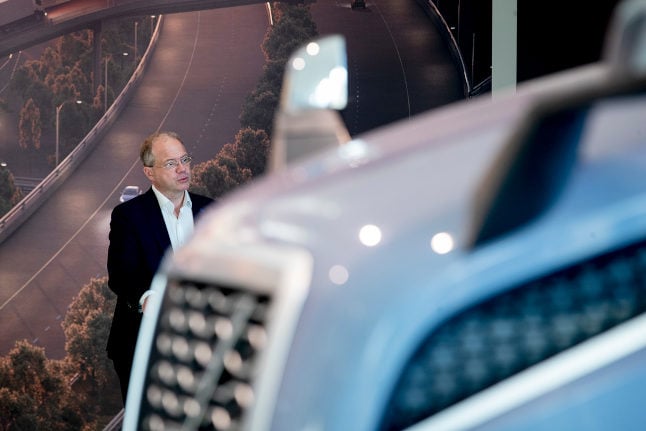It is not uncommon to see scantily clad women parading around car fairs, draping themselves over bonnets and leaning on vehicles. But so far this is something that Swedish companies like Volvo have tried to steer clear of. Until now, that is.
In the Volvo display the models moved around to assume poses around the vehicles and had their make up touched up in the unrelenting sun.
“They are our new truck-drivers,” Pär Östberg, CEO of Volvo Trucks Asia said in a an attempt at a joke with the gathered journalists.
When he didn’t get many laughs, he continued by saying that this kind of thing ‘seems popular’ in China.
At the time, Östberg didn’t want to answer questions as to why Volvo was using the models to tout trade.
Later, when news of the display was starting to reach the press, he is reported to have telephoned news agency TT to make a statement.
“I can honestly say that I was rather taken aback with how it looked. It isn’t usually like that and it shouldn’t be,” he told TT.
According to Östberg, Volvo has the same respect for women wherever the company is based worldwide.
Having models pose around the trucks severely crossed the line of what they consider appropriate.
“It’s not something we would endorse as a company,“ he said.
According to TT, Östberg claims to have looked further into the matter and found that it was the local organisers in China who have had their wires crossed. The models will not be staying in the Volvo display.
“We will remove them immediately. They don’t belong there,” Per Östberg told TT.



 Please whitelist us to continue reading.
Please whitelist us to continue reading.
Member comments